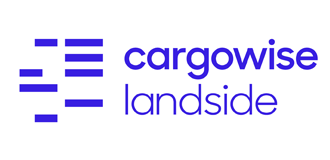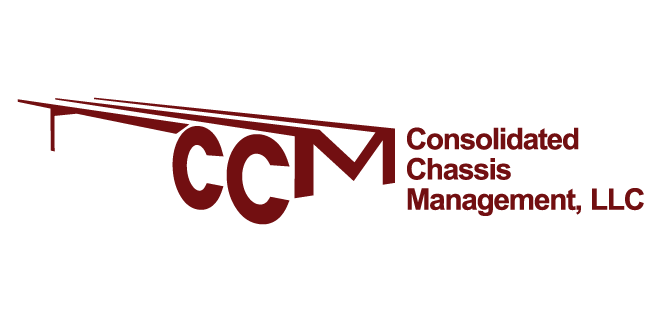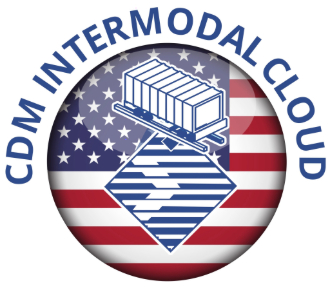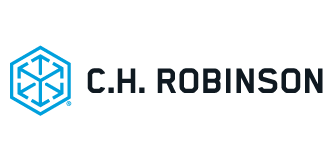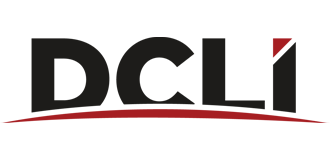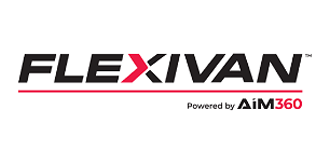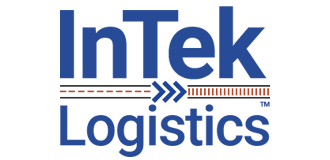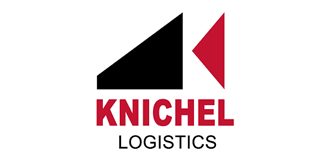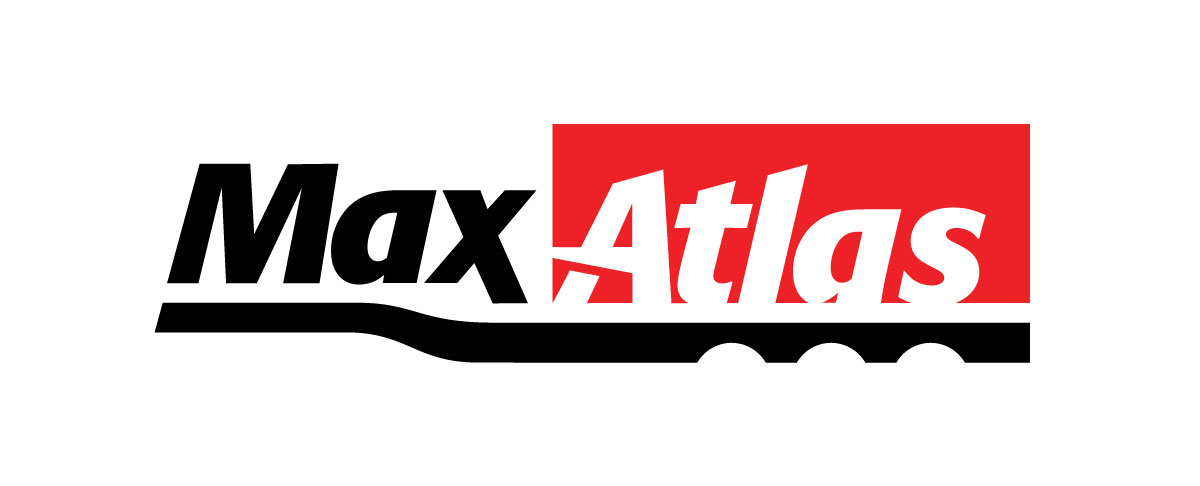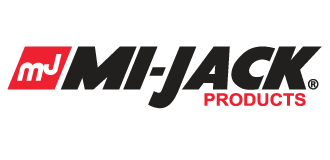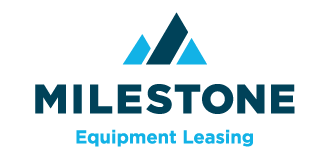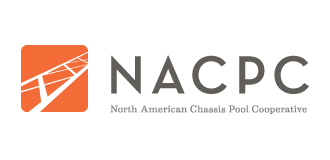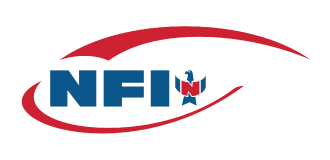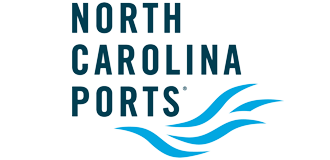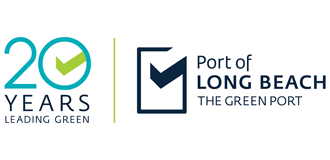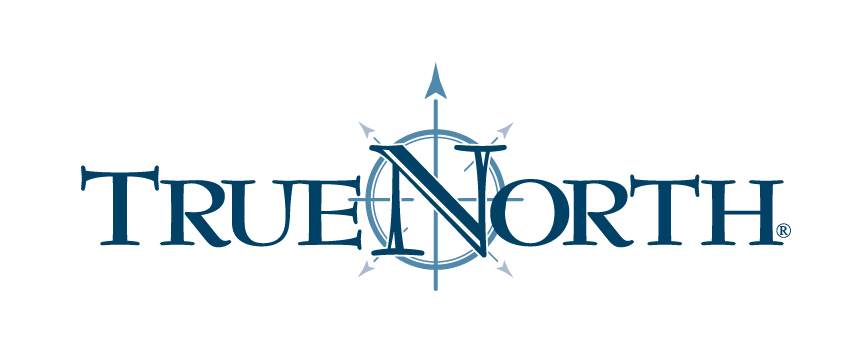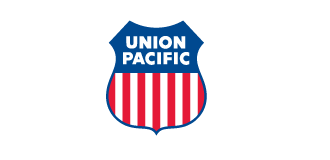Intermodal EXPO Academic Challenge – Annual Student Competition
Since 2011, the Student Competition at EXPO has allowed undergraduate students from IANA’s Scholarship Award schools to apply their logistics and transportation curriculum to real-world intermodal issues and showcase their understanding of global and domestic intermodal supply chains.
The first three competitions consisted of student research paper presentations on a prompted intermodal topic before a panel of industry judges. Subsequent competitions have consisted of student teams presenting recommendations on a specific intermodal industry business case.
University of Tennessee takes home the win for the 2024 Student Competition.
Coronado Cartage
Challenge
The case focused on Coronado Cartage Company, a fictitious motor carrier which utilizes a network of 3,000 contracted owner-operators to provide drayage service to and from major U.S. container ports on the East and West Coast, with the largest operation being in Southern California. Students were required to understand the economics of the driver shortage, operational and financial differences between employee and O-O intermodal driver models, factors decreasing the pool of available drivers, and issues regarding the recruitment and retention of new intermodal truckers. The teams provided their solutions to the driver shortage and real-world recommendations to ensure Coronado attracted a dedicated team of drivers that would enable the company to succeed.
Participating Schools
University of Tennessee, Knoxville – Winning School
Cal State University Maritime Academy
College of Charleston
Georgia Southern
State University of New York Maritime College
University of Arkansas
University of Maryland
University of North Florida
University of North Texas
University of Wisconsin – Superior
An IPI Conundrum
Challenge
Students were tasked with serving as the market analysts for the International Intermodal group at the Pacific and Midwestern Railroad (P&M), where the volume of ISO containers moving on the P&M lines between California and the Midwest was down 13% year-to-date. Teams needed to determine what was driving the decline and whether the changes were permanent or temporary. Additionally, they were asked to construct a monthly forecast for the P&M’s volume of ISO containers that will be moving in the Southwest – Midwest lane for the second half of 2023 and the year 2024, in order to determine an action plan for the path forward.
Participating Schools
University of North Texas – Winning School
Cal State University Maritime Academy
College of Charleston
Georgia Southern University
University of Arkansas
University of Maryland
University of North Florida
University of Wisconsin – Superior
Orange Grove Express
Challenge
“I know we’ve been in the business for over 40 years and have been through some rough times. But I’ve never seen anything like this.” It was dinnertime in the Parker household and Bill Parker was lamenting the state of things to his wife Betty. Together, Bill and Betty co-owned Orange Grove Express (OGE), a local trucking company based in Long Beach, CA, that specialized in the movement of ocean containers into and out of the many marine terminals that lined both the Long Beach and Los Angeles sides of San Pedro Bay. “The congestion of this supply chain crisis is killing our driver productivity and our chassis costs have gone out of sight. I know we’ve always had an asset-light policy that has kept us flexible and debt free. But I think now we have to take a close look at whether it’s time to adopt a different approach to ensuring our chassis supply”.
Participating Schools
University of North Texas — Winning School
Cal State University Maritime Academy
Georgia Southern University
State University of New York Maritime College
University of Maryland
University of North Florida
University of Wisconsin – Superior
Auburn University
University of Arkansas
Footskinz Inc.
Challenge
Prior to the pandemic, FootSkinz, producing a wide variety of athletic socks with the specs precisely tailored to meet the requirements of individual sports, all available in the exact shoe size of the athlete, had grown organically at a rapid pace. Product continued to be sourced from the family factory in Viet Nam, using imported materials including the finest cotton from the U.S. and New Zealand lamb’s wool. The finished product was brought to the United States via containers imported through the port of Long Beach. Each 40-foot high-cube container could carry roughly 15,000 individual units with an average value of $13 per unit. The containers were trucked to the FootSkinz warehouse in City of Industry where the containers were unloaded and the product placed in inventory.
Participating Schools
University of Maryland — Winning School
University of North Texas — Winning School
Cal State University Maritime Academy
College of Charleston
Georgia Southern University
State University of New York Maritime College
University of North Florida
University of Wisconsin – Superior
DRAY USA
Challenge
Each of the teams responded to a topical case focused on import volume trends resulting from the U.S.-China trade war and the current global pandemic, from the perspective of a fictitious drayage company.
The questions the students responded to in their presentations included:
- Will sufficient volume return to allow us to fully employ our fleet of company trucks?
- Will there be a snap-back in business, so that we will soon need our owner-operators, in which case we need to feed them enough business now so that they will continue to work with us when things improve?
- Which ports have been winners and losers?
- Will the changes the trade war and the Pandemic have caused continue unabated or will it alternatively, stabilize, perhaps, or even return to the way they were previously?
Participating Schools
Georgia Southern University — Winning School
Auburn University
California State University
College of Charleston
University of Maryland
University of North Florida
University of North Texas
University of Wisconsin – Superior
Taking The Long View
Challenge
The tone was set in the introduction to the case: “In order for us to know where we’re going, it’s important to know where we have been, where we’re at and how we got there”. Each of the participating teams was asked to analyze historical freight volume trends for international and domestic intermodal and over-the-road markets and identify long term trends as well as issues affecting YTD 2019 volumes. They were also asked to identify specific drivers and factors that impacted the volume trends and provide predictions for traffic patterns for the rest of 2019 and into 2020.
Participating Schools
Georgia Southern University — Winning School
College of Charleston
State University of New York Maritime College
University of Maryland
University of North Florida
University of North Texas
University of Wisconsin - Superior
Pacific Central Railroad Case
Challenge
In this case, students were asked to review the Pacific Central Railroad’s intermodal network for the opportunity to reduce operating costs by adopting a new train plan. Students were tasked with producing a weekly operating cost for the network as it currently exists using the train schedule provided in the case and the three major cost elements; determine which trains to combine; provide the routing, where the split or combination is to occur and the schedule for the combined train. Additionally, the teams detailed the cost of operating the combined train and compared it to the cost of operating two separate trains and what were the savings per year both in dollars and as a percentage of cost. And finally, to determine the total annual savings of the operating plans.
Participating Schools
College of Charleston — Winning School
Georgia Southern University
State University of New York Maritime College
University of Maryland
University of North Florida
University of North Texas
University of Wisconsin – Superior
Port Of Clearview Case
Challenge
In this case students became members of the management team for the Port of Clearview, a landlord port and major US West Coast freight gateway ranked among North America’s top 10 container ports. In recent years, shifting ocean carrier alliance dynamics, marine terminal cargo surges, labor unrest, and chassis shortages and imbalances had degraded cargo throughput with direct impact to all intermodal stakeholders, in particular the harbor draymen. Student teams provided recommendations to the Port of Clearview Efficiency Task Force after analyzing real-world factors of marine terminal gate operations and evaluating congestion mitigation solutions including: gate hour extensions and levying container surcharges, port-wide truck appointment systems, and visibility software utilizing GPS, RFID, or Bluetooth/Wi-Fi “sniffers” to provide real-time congestion and turn-time data.
Participating Schools
University of Maryland — Winning School
Georgia Southern University
State University of New York Maritime College
University of North Florida
University of North Texas
University of Wisconsin – Superior
Sealift Container Lines Case
Challenge
In this case, students were placed in the shoes of the CEO of Sealift Container Lines who must make decisions in order to ensure his company’s survival. The students were required to understand maritime economics, liner dynamics and alliance formation, slow-steaming and ultra-large-container-vessel trends, and the landside effects of larger vessel deployment. The teams presented their recommendations on whether SCL should join an alliance, merge with another carrier, allow itself to be acquired, seek a fleet renewal or another solution.
Participating Schools
University of Wisconsin – Superior — Winning School
College of Charleston
Georgia Southern University
University of Maryland
University of North Florida
University of North Texas
Coronado Cartage Company Case
Challenge
The case focused on Coronado Cartage Company, a fictitious motor carrier operating in Southern California which utilizes a network of 3,000 contracted owner-operators to provide service to marine and rail intermodal terminals. Students were required to understand the economics of the driver shortage, operational and financial differences between employee and O-O intermodal driver models, factors decreasing the pool of available drivers such as increasing age and retirements, and issues regarding the recruitment and retention of new intermodal truckers. The teams provided their solutions to the driver shortage and real-world recommendations to ensure Coronado attracted a dedicated team of drivers that would enable the company to succeed.
Participating Schools
University of North Texas — Winning School
University of Maryland
University of North Florida
University of Wisconsin-Superior
Paksmart Luggage Corporation Case
Challenge
This case focused on PakSmart Luggage Corporation, a fictional manufacturer of unique carry-on luggage products and a supply chain network with primary manufacturing in China and distribution centers located near Los Angeles, California and Toledo, Ohio. Students were required to analyze the company’s inbound logistics and provide cost recommendations with regard to the intermodal routing of international ocean containers, drayage and domestic intermodal transload opportunities, and transport and inventory carrying costs estimates for a variety of available container sizes.
Participating Schools
University of North Texas — Winning School
University of Maryland
University of North Florida
University of Wisconsin – Superior
Regulatory Impacts On Intermodal Research Paper
Challenge
Students were asked to consider regulatory changes impacting the global supply chain’s operating environment. Specific aspects were: environmental sustainability; adequate supply of labor; capacity, in terms of infrastructure and equipment; and new technology. The submitted research described specific conditions that would: facilitate growth in intermodal transportation services; and alternatively hamper growth in intermodal services.
Participating Schools
University of Maryland — Winning School
University of North Florida
Growth Of Intermodalism Research Paper
Challenge
Students were asked to identify the primary reasons for the current growth in utilization of intermodal services and provide an analysis of whether these reasons would be sustainable for the next 5 – 10 years and under what circumstances. As part of the analysis, students identified attributes missing from the current market that could drive future cargo toward intermodal and what actions would need to be taken by intermodal carriers to capitalize on these potential opportunities.
Participating Schools
University of Maryland — Winning School
University of North Florida
Intermodal Value Proposition Research Paper
Challenge
Students were asked to identify specific supply chains and markets where intermodal transportation could add value and provide justification for their recommendations. In their response papers, the students considered: shipper categories that traditionally utilize highway transport vs. multimodal transport; the locations of distribution centers, consumer demographics and consumption patterns; commodity types and product characteristics; equipment flows and availability — chassis and containers; and impact on truck driver availabilities/shortages.
Participating Schools
University of Maryland — Winning School
University of North Florida
IANA Logistics & Supply Chain Management Case Competition at the University of North Florida
Under its IANA Scholarship Award, the University of North Florida annually hosts a three day case competition, drawing some of the brightest students from the nation’s leading undergraduate supply chain management programs to Jacksonville, Florida. During this competition, students must analyze an intermodal case study, create a presentation that defines the problem, and provide judges with recommendations to solve the problem. As part of the three day competition, students, faculty and industry judges visit intermodal facilities in the Jacksonville region.
Intermodal Detective Case
Challenge
This case focused on Inland Point Intermodal trends and the root causes of recent intermodal trade data that indicate an increase in international imported containers yet a decrease in IPI containers transported by rail. Students were required to understand transloading of international container cargo into domestic containers, mega-alliance service complexity and ocean carrier consolidation, and OTR motor carrier competition. Teams were asked to provide an explanation for the trends, quantify its effects, predict future conditions and recommend actions to be taken by the intermodal industry.
Participating Schools
University of Tennessee — Winning School
Auburn University
Georgia Southern University
University of Arkansas
University of Maryland
University of North Florida
University of North Texas
Ice Cold Express Case
Challenge
The students analyzed a business case for Ice Cold Express, a fictitious temperature controlled truckload carrier. The case required students to research the North American reefer intermodal market, rail line haul, drayage cost, equipment cost, intermodal provider profit margin, equipment utilization, and intermodal unit load capacity. The ultimate recommendation was whether the company should invest in reefer trailers, reefer containers, or modify OTR refrigerated trailers to ensure fleet capacity.
Participating Schools
University of Tennessee — Winning School
Auburn University
Georgia Southern University
University of Arkansas
University of Maryland
University of North Florida
University of North Texas
Florida East Coast Railway Case
Challenge
This case focused on market analysis for a potential intermodal service that would link southern and central Florida. The railroad that would provide the service was Florida East Coast Railway, an actual Class II rail carrier. The students were required to analyze international and domestic intermodal lanes, review maritime container connectivity to FECR served ports, assess the viability of a new “short-haul” domestic intermodal service, and consider sustainable options such as FECR’s interest in LNG locomotives and truck tractors.
Participating Schools
University of North Texas — Winning School
Auburn University
Georgia Southern University
Michigan State University
University of Arkansas
University of Maryland
University of North Florida
University of Tennessee
Monroe Supply Hardware Case
Challenge
The students analyzed a business case study for Monroe Supply Hardware — an actual company whose identity in the case was masked, a regional retailer of building and home improvement products headquartered in Cleveland, Ohio, which operates a network of 65 retail outlets in Ohio and in neighboring states of Kentucky, Indiana and Pennsylvania. The case focused on the role of intermodal transportation in Monroe’s global supply chain, stretching from Asia to North America.
Participating Schools
University of Tennessee — Winning School
Auburn University
Georgia Southern University
Michigan State University
University of Arkansas
University of Maryland
University of North Florida
University of North Texas
Yellow Moon Case
Challenge
The students analyzed a business case study for Yellow Moon — an actual company whose identity in the case was masked, a well-established office supply company with annual revenue of $950 million. The case study addressed a number of common transportation management issues such as cost, service, rates, risk, and intermodal operations. This case required student teams to analyze real freight data and order shipment history, and prioritize their efforts with an ABC approach.
Participating Schools
Auburn University – Winning School
Georgia Southern University
Michigan State University
University of Arkansas
University of Maryland
University of North Florida
University of North Texas
West Marine Case
Challenge
The case study required students to analyze supply chain issues facing West Marine, a leading retailer and wholesaler of boating equipment sold through retail stores, internet and catalogs. The students addressed end-to-end supply chain issues including customer service, operational models, delivery options, finance and investment, future growth, distribution and corporate culture. They also took the opportunity to weave intermodal transportation solutions into West Marine’s expansion plans.
Participating Schools
University of Arkansas — Winning School
Auburn University
Georgia Southern University
Michigan State University
University of Maryland
University of North Florida
University of North Texas
University of Tennessee
zappos.com Case
Challenge
The case study focused on supply chain issues facing Zappos.com, a leading online retailer of shoes and apparel. The students addressed end-to-end supply chain issues including customer service, operational models, delivery options, finance and investment, future growth, corporate culture, brand management, inventory, distribution, and a host of challenges that face decision makers every day in the real world.
Participating Schools
University of Tennessee — Winning School
Auburn University
Georgia Southern University
Michigan State University
University of Arkansas
University of Maryland
University of North Florida
University of North Texas




